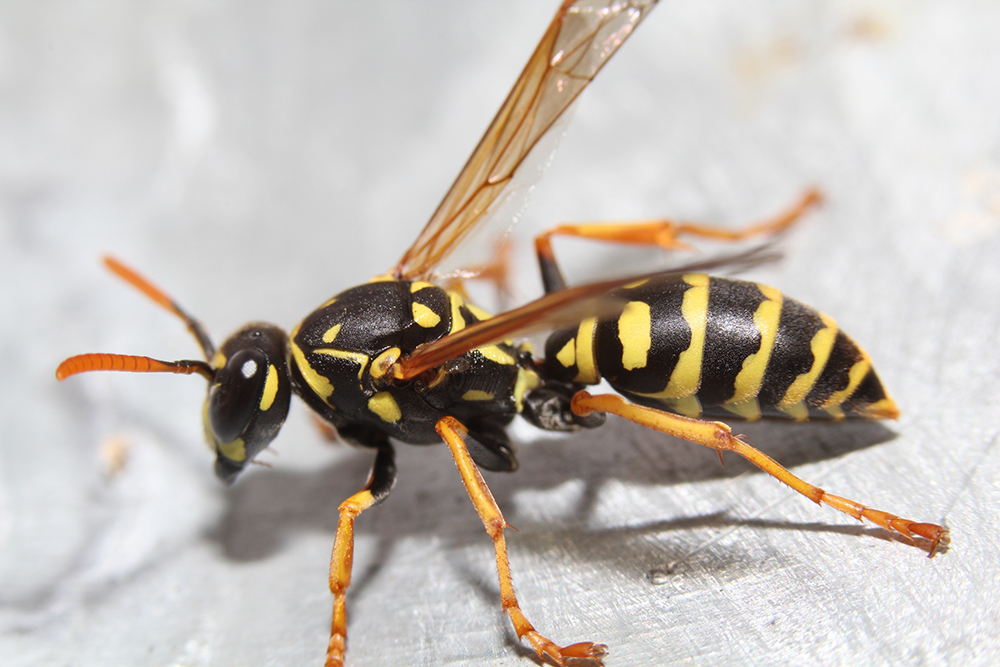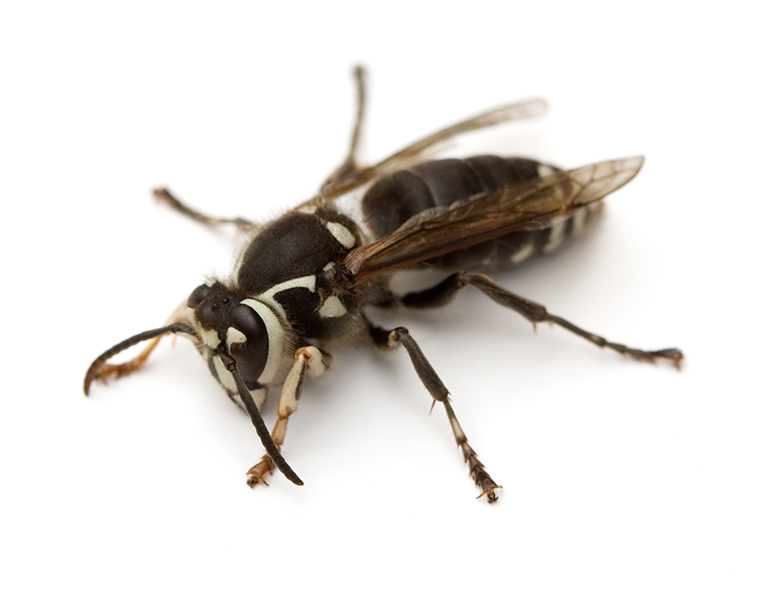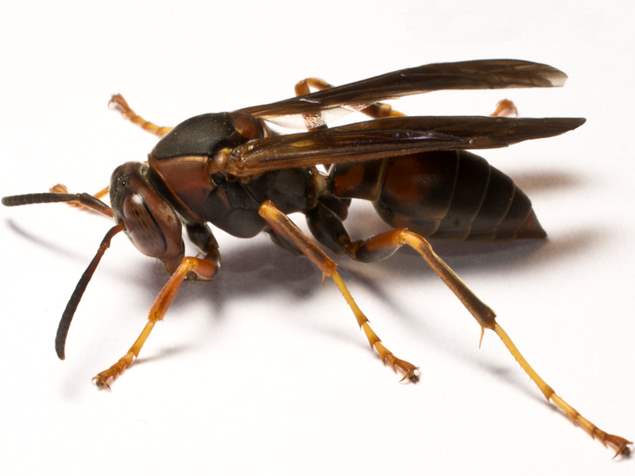Stinging Insects
Suburban Wildlife Control, LLC provides you with considerable information on insect natural history and control for your reference.
Yellowjacket
Threats:
Yellowjackets’ stings pose significant health threats to humans. They are territorial and will sting if their nest is threatened. Yellowjackets may sting repeatedly and can cause allergic reactions.

Prevention:
- Wear shoes, especially in grassy areas.
- Remove garbage frequently and keep trashcans covered.
- Do not swat at a yellowjacket, as it increases the likelihood of an aggressive reaction.
- Avoid wearing sweet-smelling perfumes.
- Ensure all doors and windows in your home have screens that are in good condition.
- Seek immediate medical attention if stung, as reactions can be severe.
- If you find a yellowjacket nest on your home or in your property, contact a licensed pest professional.
Did you know? Yellowjackets…
- and other stinging insects send more than 500,000 people to the emergency room each year.
- live in colonies with up to 4,000 workers.
- build paper carton nests out of chewed up cellulose.
Contact Suburban Wildlife Control, LLC for all of your insect control needs.
Bald-Faced Hornets
Threats:
Bald-faced hornets are aggressive and will attack anyone or anything that invades their space. This makes bald-faced hornet removal somewhat difficult. They have smooth stingers, so they can sting over and over again. Their stings also carry venom that makes the stings hurt, itch or swell for about 24 hours. Humans are at the same risk of allergic reactions from a bald-faced hornet stings as with other insect stings.

Prevention:
- Bald-faced hornets are beneficial insects that help to control many pest species. However, if a nest is close to the ground or near an occupied structure, control is warranted.
- Routinely inspect the outside of your home and any outbuildings for stinging insect nests.
- If you find a bald-faced hornet nest on your home or property, do not attempt to remove it on your own as this can aggravate the colony and cause them to attack. Contact a licensed pest management professional about hornet removal to avoid the risk of getting stung.
Did you know? Bald-faced hornets…
- live in nests with as many as 400 workers.
- do not reuse their nests season after season, as some stinging insects do.
- can build nests as large as 14 inches in diameter and more than 24 inches in length.
Contact Suburban Wildlife Control, LLC for all of your insect control needs.
Paper Wasps
Threats:
While not an aggressive species by nature, paper wasps will sting if they are disturbed or their nest is threatened. It’s unusual for an impregnated paper wasp to sting, but it can happen.

Prevention:
The best way to prevent a paper wasp infestation and the potential of getting stung is to make the home less attractive to the stinging insect. Before trimming shrubs or hedges, or picking fruit, check the plant for paper wasp nests to avoid contact with these stinging insects. Seal cracks and crevices in the home with a silicone-based caulk, repair any tears in screens, and try to keep doors closed to prevent paper wasps from entering the home.
Keeping food covered, especially when outdoors, will also help keep these insects at bay when they are in search of nourishment. When spending time outside, people should avoid wearing strong fragrances and opt for unscented hygienic products. Likewise, they should wear shoes that cover and protect their feet from rogue paper wasps.
Contact Suburban Wildlife Control, LLC for all of your insect control needs.
For more information on stinging insects, visit to our Insect Species Information
Contact Suburban Wildlife Control, LLC for all of your wildlife and insect control needs.
Fill out the contact form below or use the contact information to reach us.
CONTACT INFO:
Suburban Wildlife Control, LLC.
(877) 881-5230 Toll free
(603) 881-5230


